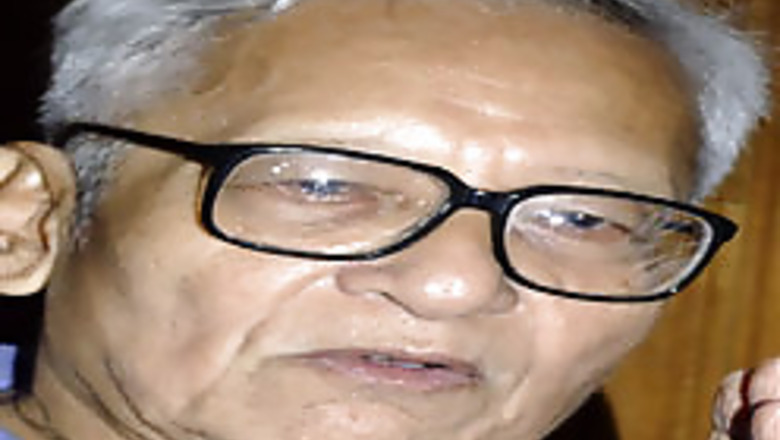
views
Yangoon: Myanmar's longest-serving political prisoner was among more than 9,000 inmates freed on Tuesday, days before the first anniversary of the junta's deadly crackdown on anti-government protests led by Buddhist monks.
Win Tin, a journalist-turned-activist and aide to pro-democracy opposition leader Aung San Suu Kyi, was held for 19 years.
He was one of at least seven political prisoners released, Amnesty International said.
The rights group said there are an estimated 2,100 political prisoners in Myanmar, which has been under military rule for 46 years and is one of the world's poorest and most authoritarian nations.
A longtime journalist and poet, while in prison Win Tin would write poems on the walls of his cell with ink made of brick powder and water, according to supporters who visited him.
He said he would keep wearing his prison blues as a sign of protest against the military rulers, and he vowed to keep pressing for more freedom.
''I have to continue with my unfinished task of trying to achieve democracy in Myanmar,'' he said from a friend's home in Yangon after being released from Insein Prison.
While incarcerated, WinTin had two heart attacks, a hernia operation and suffered from high blood pressure, diabetes and spinal inflammation, according to international media groups.
Now 78, he appeared alert and healthy despite recent reports of being ill.
Asked how it felt to be free, WinTin replied, ''I will be happy only when all political prisoners, including Aung San Suu Kyi are released.''
Nobel Peace Prize winner Suu Kyi has spent more than 12 of the past 19 years in detention, mostly under house arrest. In 1990, her party won a landslide victory that the junta refused to acknowledge. Instead, the regime stepped up arrests and repression of dissidents.
Suu Kyi has called Win Tin ''a man of courage and integrity'' and said he was instrumental in Myanmar's democracy movement. Human rights groups rejoiced at his release.
''We are immensely relieved that he has finally been freed,'' Reporters Without Borders said in a statement. ''It is unacceptable that he was made to serve 19 years in prison for peacefully advocating democracy but today his release is an historic moment.''
The amnesty granted to 9,002 prisoners around the country was believed to be one of the largest the junta has approved.
It came days ahead of the first anniversary of the military junta's brutal crackdown on protests led by Buddhist monks.
The UN estimated at least 31 people were killed when the army fired on peaceful protesters September 26-27, sparking global outrage.
Analysts suspect the junta timed the release as an attempt to fend off international criticism on the anniversary.
''I am certain that it is part of a political strategy,'' said Josef Silverstein, a retired Rutgers University professor and Myanmar expert.
''The military did not come off well in attacking the monks last year and that attack has not been forgotten.''
The junta ''is determined to get the world to forget and just take note of the military's 'favorable' action,'' he added.
Win Tin served as a close aide to Suu Kyi and helped found her National League for Democracy opposition party in 1988.
He was arrested on July 4, 1989, along with other opposition politicians. Authorities initially kept him without food while interrogating him about his role in the democracy movement, Suu Kyi wrote in 1996 in a newspaper article.
Tried in a military court, he was sentenced to 14 years in prison for allegedly being a member of the banned Communist Party of Myanmar.
He was most recently sentenced in 1996 to an additional seven years for writing to the United Nations about prison conditions and for writing and circulating anti-government pamphlets in prison.
Amnesty International called Win Tin's release ''the best news to come out of Myanmar in a long time,'' but said the seven political prisoners ''don't even represent 1 percent of the political prisoners there. There are many, many more who should also be released.''
The United Nations and international rights groups had long called for Win Tin's release and referred to him as Myanmar's longest-serving political prisoner.
State-controlled media said the amnesty was granted to prisoners who exhibited good ''moral behavior.''
Analysts said the vast majority of the prisoners were likely petty criminals. The government often grants amnesty to people convicted of low-level crimes to mark important national days.




















Comments
0 comment